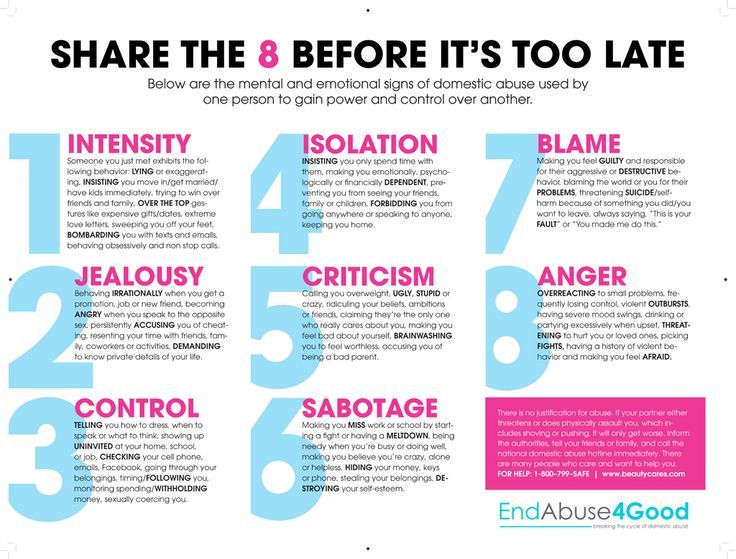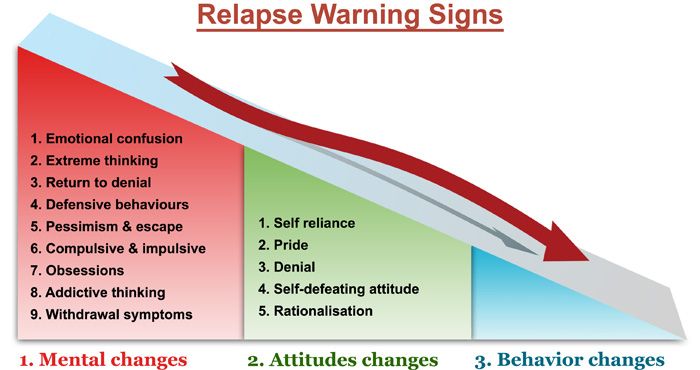How to live with a grumpy old man
How to Live with a Grumpy Old Man or Mom Who's Never Happy
Dealing with Negative Elderly Parents
Do any of these feel familiar?
“My elderly Mother is never happy.”“Dad is just a grumpy old man and I can’t handle it anymore!”“All my parents do is complain. I try to help, but I don’t seem to be able to do anything right.”“Dealing with negative elderly parents is taking a toll on my whole family.”We previously discussed How to Deal with Negative Parents and tackled different arguments between adult children and their parents, which apparently struck a chord! They are some of our most popular posts and we wrote them because we hear about such challenges from families every day.
Grumpy Old Man or Depressed Old Man?
One of the first considerations is understanding what might be causing the negativity. Though it’s not always the case, irritability, anger, and even confusion can be signs of depression, especially in elders. Read more about depression in the elderly.
Depression can be especially tricky, as you may want to help but are often frustrated in your efforts. One of the ways depression plays out is in lack of motivation, loss of interest in normal activities, and hopelessness. Therefore, it isn’t so easy to deal with a grumpy old man or unhappy Mom experiencing depression. We have some tips for caregivers here and we highly recommend reaching out for support. Sometimes it helps just to talk to someone about “living with a grumpy old man” or frustrations with a negative attitude. Just because you know there’s an underlying cause doesn’t automatically make it easier to solve.
Even if an elder is not clinically depressed, the root of their negativity may be the losses they’re experiencing. They may be isolated and not have much to focus on except aches, pains, and problems. Physical discomfort often leads to irritability too.
Another Root Issue for Some Negative Elderly Parents: Cognitive Issues
Another reason behind irritability and negativity could be cognitive issues (i. e. dementia/Alzheimer’s). Dementia and depression can mimic each other, so if you suspect any of these issues, it is vital to get a diagnostic workup. There are different underlying causes of cognitive problems in the elderly, some of which are treatable.
e. dementia/Alzheimer’s). Dementia and depression can mimic each other, so if you suspect any of these issues, it is vital to get a diagnostic workup. There are different underlying causes of cognitive problems in the elderly, some of which are treatable.
A person with any type of dementia may experience personality changes. The physical changes to the brain may be involved. Or, the person may be experiencing confusion, frustration and fear. Just imagine yourself in the shoes of the person who feels they are losing their grasp on things...you might become a grumpy old man too. We often see clients with dementia lash out at those closest to them and get extremely defensive. It is often easier to complain about things than to admit what you’re experiencing. And, in many cases, it isn’t even possible for a person with dementia (even at an early stage) to verbalize what they’re feeling.
What if He Is Just a Grumpy Old Man?
Unfortunately, not every case of “grumpy old man syndrome” has a root cause or good solutions. Sometimes dealing with negative elderly parents is just a continuation of a lifetime of dealing with a negative personality. In that case, some of the tips (outside help in particular) below are especially important to help you manage. The focus will be on managing and coping, versus solving.
Sometimes dealing with negative elderly parents is just a continuation of a lifetime of dealing with a negative personality. In that case, some of the tips (outside help in particular) below are especially important to help you manage. The focus will be on managing and coping, versus solving.
In other cases, it may be that your parent is having difficulty adjusting to all the change (and loss) that can come with aging. A classic example of the grumpy old man is a person who identified closely with their profession and is at a loss for his/her place since retiring. They may have been used to their routine and running things, and now they feel a true lack of control. That person often tries to grasp for any feeling of control. To you, this may come across as stubbornness or refusing to take advice or suggestions.
Tips for Dealing with Negative Elderly Parents
1. Get an assessment to identify root issues and get personalized solutions.
Care managers are the experts in grumpy old men and unhappy Moms. No, really! We excel at understanding what’s really going on with elders, as well as looking at the big picture to suggest solutions that will actually work. We have many years of experience working with families in conflict, elders with dementia who are lashing out, and all kinds of tough circumstances.
2. Get homecaregivers involved.
This is one of the best things you can do! Why? First, it gives you a break. It means your grumpy Dad has someone else to talk to (complain to). This will also help reduce isolation and get them more active, which in turn helps with depression and irritability.
The caregiver(s) can be sure your loved one gets better nutrition, takes their meds properly, has a nice environment, looks and feels their best, etc. All of which address some of the underlying issues that are likely contributing to negativity. A home caregiver can also be a direct answer to some of your parents complaints.
A home caregiver can also be a direct answer to some of your parents complaints.
3. Know when you need a break or somewhere to vent .
Whether it's respite care, regular support sessions with a care manager, or a caregiver support group, know when you need to reach out. If you find yourself with a short fuse (when you become a grumpy younger man or woman!), it’s time to get some separation. Perhaps you’re lashing out at other family members or just feeling no energy for your other roles. It can be draining to deal with negative elderly parents. You may think you have no way to get away from it, but you do have choices and support is available.
4. Enlist help from others. Don’t be reluctant to admit when someone else can deal with Mom or Dad better.
For example, Dad might listen to your brother more...maybe especially on certain issues. Don’t fight this, use the knowledge to make things run smoother. If your family has conflict between siblings, there may be ways to harness your differences and tackle different areas of caring for your parents. We can mediate family discussions to set up the best way to handle things.
If your family has conflict between siblings, there may be ways to harness your differences and tackle different areas of caring for your parents. We can mediate family discussions to set up the best way to handle things.
Oftentimes, families tell us they’re a bit upset at first, but then relieved that their parent listens to their care manager or caregiver more. Again, take advantage of that. Remember, it’s not always easy to have your “kid” telling you what to do. They may still see you as a kid, even when you’re 70. Sometimes you know Mom is likely to listen to what her doctor or accountant has to say. Whatever works...work it!
What are your biggest frustrations dealing with negative elderly parents? Come over to our Caregivers’ Facebook group and share! It’s a safe space to vent, offer what’s worked for you, or get ideas.
Sign up for the Aging Wisely newsletter for more on this topic and other caregiving dilemmas.
Caregiver Tips: "The Grumpy Old Man"
Check out this clip from Seinfeld, in which Jerry finds himself confronted with a “grumpy old man” as his client when he volunteers with a senior program.
Unfortunately you may sometimes find yourself caring for such a “grumpy old man” (or woman) as a client or relative. This is the care recipient who is often angry or upset: you can’t do anything right, he or she might lash out at you, constantly complain and even falsely accuse you of something. Every suggestion you make is turned down and the client may complain about you to others or be sarcastic or mean in direct conversation. Some care recipients even lash out physically or become extremely paranoid when dementia or other issues are at hand. Here is our caregiver advice for dealing gracefully with the “grumpy” care recipient:
- Use redirection and deflection techniques. If the client is angry about something, don’t ignore his/her feelings, but it may be helpful to redirect the conversation or activity to something more positive.
- Get to know the activities that the client enjoys or finds soothing.
 For example, maybe there is a TV show or type of movie that makes the client laugh, or he calms down when listening to his favorite music. Exercise produces healthy endorphins, which are known to help with mood so a regular walk or other exercise can be an important tool for mood and well-being.
For example, maybe there is a TV show or type of movie that makes the client laugh, or he calms down when listening to his favorite music. Exercise produces healthy endorphins, which are known to help with mood so a regular walk or other exercise can be an important tool for mood and well-being. - Monitor and modify your own reactions. It’s easy to get stressed in situations dealing with a challenging client or loved one. It seems especially hard with loved ones, because you bring your history to the situation and it may be hard to separate behavior related to a disease like dementia from the person you know. Take a moment to catch your breath before you walk in to greet the person. Try to leave other life stresses behind, as your attitude will affect the care recipient’s. You may need to take a break occasionally, whether just taking a few minutes to walk outside or having respite care so you can have some extended/regular time away. Humor can be a good coping mechanism and stress reliever for the caregiver (and might help the care recipient too).

- Know when to take things with “a grain of salt”. In the example of Jerry Seinfeld’s client, the client accuses the caregiver of stealing and Jerry himself gets in to a bit of trouble when he takes some old albums that the client says are trash. This is not to say you should dismiss a loved one’s story of abuse or mistreatment any time. At EasyLiving, we take any client or family claim very seriously and fully investigate. However, if you become aware that your loved one is having memory issues or paranoia, be cautious with accusations. It is important to investigate fully before damaging someone’s reputation or becoming angry about what might have happened. This can occur between siblings too. Often the sibling who lives close by or has the most contact becomes the object of paranoia for the person with dementia. Before you assume your sibling is stealing from Mom, check in to things carefully and use a measured approach.
- As a caregiver, learn from Jerry’s experience and take a very straightforward approach with issues like gifts.
 This is why we have a strict “no gifts” policy for EasyLiving’s caregivers. If an older client wants to give something away or your loved one is making such decisions, it is probably best to consult with everyone involved beforehand so accusations don’t arise later. It is good to document any concerns or complaints the care recipient makes, talk to other family members about what is going on, or even bring in a third party to mediate or monitor the situation.
This is why we have a strict “no gifts” policy for EasyLiving’s caregivers. If an older client wants to give something away or your loved one is making such decisions, it is probably best to consult with everyone involved beforehand so accusations don’t arise later. It is good to document any concerns or complaints the care recipient makes, talk to other family members about what is going on, or even bring in a third party to mediate or monitor the situation. - Is there something more going on? Depression in the elderly often presents with symptoms such as agitation, restlessness and cognitive issues. You may think the person is just irritable when they are really depressed and could benefit from treatment. People with Alzheimer’s disease may experience behavioral symptoms such as agitation, paranoia, and even hallucinations and delusions. Talk about these issues with a geriatric psychiatrist or neurologist to find out what can be done. It is also important to explore possible sources of discomfort for your care recipient.
 Her irritation may be a sign of a urinary tract infection or his anger may be the first sign he is not feeling well or has pain.
Her irritation may be a sign of a urinary tract infection or his anger may be the first sign he is not feeling well or has pain. - Safety always comes first. A caregiver should not be put in harm’s way while providing care so it is important to address real dangers, such as clients who lash out physically. At EasyLiving, we also remind our caregivers and clients/families that we support our employees and will not tolerate them being abused or mistreated. For some reason, there are occasionally family members who do not respect the work of a professional caregiver and treat caregivers less than humanely. Our first priority is always creating a supportive environment for our caregivers to do the best job, so we have zero tolerance for this type of behavior.
What are your best tips for dealing with a care recipient who is less than pleasant? Come on over to our EasyLiving Facebook community to leave your tips and comments!
Contact EasyLiving’s Senior Care Consultant at 727-447-5845 if we can help with any of your caregiving needs or questions!
Topics: Home Care, Caregivers, Alzheimer's/Dementia
Book of Wisdom of Jesus, son of Sirach *
1 With three I was adorned and became beautiful before the Lord and people: 2 it is like-mindedness among brothers and love among neighbors, and wife and husband living in harmony with each other.
3 And my soul hated three kinds of people, and their life is very disgusting to me: 4 an arrogant beggar, a deceitful rich man and an adulterous old man, weakening in his mind.
5 What you did not collect in your youth, how can you gain in your old age?
6 How decent it is for gray-haired people to judge, and for elders to be able to give advice!
7 How beautiful is the wisdom of the elders and how prudence and advice are appropriate for respectable people!
8 The crown of the elders is many-sided experience, and their praise is the fear of the Lord.
9 Nine thoughts I have praised in my heart, and the tenth I will express with my tongue: 10 this is a man who rejoices over children and during his lifetime sees the fall of enemies.
11 Blessed is he who lives with a wise woman, who does not err on the tongue and does not serve the unworthy of himself.
12 Blessed is he who has acquired wisdom and transmits it to the ears of those who hear.
13 How great is he who has found wisdom! but he is not above him who fears the Lord.
14 The fear of the Lord surpasses everything, and whoever has it can be compared with?
15 You can endure any wound, but not the wound of the heart, and any anger, but not the anger of a woman, 16 every attack, but not an attack from those who hate, and every vengeance, but not the vengeance of enemies; 17 there is no head more poisonous than the head of a snake, and there is no rage stronger than the rage of the enemy.
18 I agree that it is better to live with a lion and a dragon than to live with an evil wife.
19 The wife's anger changes her look and makes her face gloomy, like a bear's.
20 Her husband will sit down among his friends, and when he hears about her, he will sigh bitterly.
21 All anger is small in comparison with the anger of a wife; let the lot of the sinner fall on her.
22 What climbing on the sand is to the feet of an old man, a quarrelsome wife is to a quiet husband.
23 Do not stare at the beauty of a woman and do not lust after your wife.
24 Annoyance, shame and great shame when a wife prevails over her husband.
25 A sad heart and a sad face and a heart wound - an evil wife.
26 Lowered hands and relaxed knees - a wife who does not make her husband happy.
27 From the woman the beginning of sin, and through her we all die.
28 Do not give water an outlet, nor an evil wife - power; 29 if it does not walk under your hand, then cut it off from your flesh.
Chapter 24
Chapter 26
Reviews: A Second Life Uwe, The English Dressmaker, Children's Law
Three books about love, faith and hope, which, according to Karina Tumanskaya, cannot be read without tears.

I never believed that a book could evoke such strong emotions in me that tears would come to my eyes. And then over the summer I turned up at once three of these - I can not help but share.
Second life Uwe, Fredrik Backman
Do you remember the cartoon "Up"? A grumpy old man goes after a dream in the company of a kind, plump, punchy boy. Its very beginning, when that old man, while still a child, meets his future wife - and in a couple of minutes they show us their whole life? So touching it brings tears to my eyes.
For the whole book, I remembered the cartoon and was in the same emotional state - just a little more and I will cry.
The protagonist is the overly pedantic and gloomy Uwe. His life turned out to be difficult, therefore, apparently, his character is also difficult. And when his beloved wife died after a serious illness, Uwe became completely unbearable.
He is fifty nine. He gets up every day at a quarter to six ( alarm clocks never kept ), drinks only black coffee ( at the rate of one spoon per cup plus one more per coffee pot, otherwise they have forgotten how to make normal coffee ), makes a daily round ( examined the parking lot, went around the garages, made sure that thieves had not broken into them overnight and had not been set on fire by a gang of vandals. To confess , nothing like this has happened to local garages for centuries ). And suddenly at some point he realizes that he can no longer.
To confess , nothing like this has happened to local garages for centuries ). And suddenly at some point he realizes that he can no longer.
No, you can't live like this anymore. This is the only thing Uwe is clear about.
The book is written in a simple style, the plot is predictable, in fact you read one page and already know what will happen on the next. But this does not mean that reading it is boring and uninteresting. It relaxes, calms, and you begin to believe in good even on the most difficult day. It is necessary to read, wrapped in a blanket and drinking tea with mint.
Quote: “Now listen to me,” Ove says calmly, gently slamming the door. You have already given birth to two, and soon you will give birth to a third. Came from another country, probably fled from war, persecution and other horrors. You learned a foreign language, got an education, found a job, you support a whole family in which, apart from you, it seems that no one is good for anything. <…> I'm not asking you to become a neurosurgeon. Just learn to drive a car. Here is the gas, here is the brake, here is the clutch. The dumbest idiots in the world and they were able to figure out what was what. So can't you? - and utters seven words that will be deposited in Parvana's memory as the most exquisite compliment ever heard, - You are not a complete fool!
<…> I'm not asking you to become a neurosurgeon. Just learn to drive a car. Here is the gas, here is the brake, here is the clutch. The dumbest idiots in the world and they were able to figure out what was what. So can't you? - and utters seven words that will be deposited in Parvana's memory as the most exquisite compliment ever heard, - You are not a complete fool!
English dressmaker, Mary Chamberlain
The cover of the book and the short reviews on the last page, promising "a gripping tale of dreams and desires" and that I would fall in love with the main character Ada Vaughan immediately, I was deceived. I imagined a light female novel. Prepared to be disappointed with a cute “happily ever after” ending. From the first page I expected that I would get into a fairy tale (well, now they will definitely find each other, get married and get bored). But no. Instead, she sank deeper and deeper into a hopeless swamp of injustice and pain. Hell now wanted to regret, then strangle. From a quivering doe, she turned into a neurasthenic, and her inner core turned out to be the ability to lie to everyone, including herself. Whether she is naive or just a fool, I cannot decide even now. But it is precisely this ambiguity and throwing that the book draws in. In contrast to The Second Life of Ove, it is heavy and devastating, but it is impossible to tear yourself away.
Quote: “ She wore a jacket over a thick wool sweater and kitchen apron, and now it was too tight around her shoulders. No, Ada wanted to say, that won't do. Things don't match. But she held her tongue. One glance at Annie was enough to understand: the cook has never had a better update.
Children's Law, Ian McEwan
His name is Jack and he is 60 and successful. Hers is Fiona, she is a little younger, and also very successful. They have been married for 35 years. Confidence in the future is left behind, because Jack has a "last chance", a thirst for life and sex. And Fiona has a job (she is a member of the British Supreme Court). The essence of her new trial looks like this: a minor young man will die without a blood transfusion, which is forbidden to him by religion. It is in her power to save his life. But then Adam will lose his faith, the support of his family and friends.
And Fiona has a job (she is a member of the British Supreme Court). The essence of her new trial looks like this: a minor young man will die without a blood transfusion, which is forbidden to him by religion. It is in her power to save his life. But then Adam will lose his faith, the support of his family and friends.
If the world were divided into black and white, then everything would be obvious: Jack is bad, Fiona is good, Adam must live. But the facts are always overgrown with history and emotions. No, the world is not divided only into black and white.
I have already slipped the book to my friends. For some, the main storyline was the history of the Fiona family. For some it is a novel about faith, for others it is about injustice. The ending of the book depends on what topic is closer and more important to you - a happy ending or not.
Quote: “Matthew is unlikely to live more than six months. He will die and take his brother with him. The London hospital urgently needed permission to separate the twins in order to save Mark, who had a chance to become a normal healthy child.














